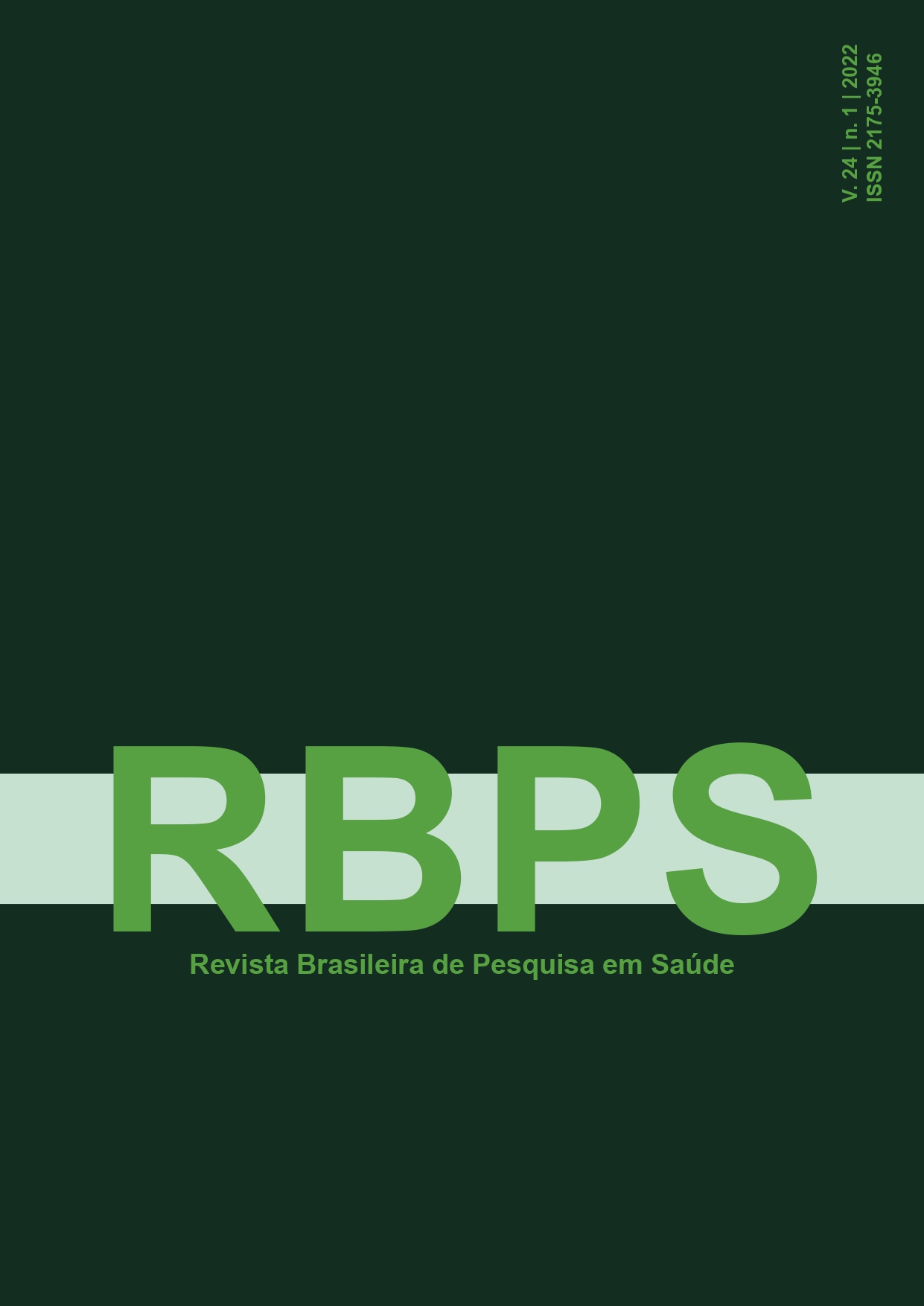Mariana disaster (MG, Brazil): a perspective concerning the environmental, bioethics and human rights impact
DOI:
https://doi.org/10.47456/rbps.v24i1.23384Keywords:
Mariana, MG., Man-made disaster, Mining, Public health, BioethicsAbstract
Introduction: Bioethics is embedded in ethical issues raised by medicine, life sciences and associated technologies in its application to human beings, allowing reflection on values and concepts ‒ life, quality of life, suffering, resilience, dignity, health and illness. Considering that in dams disasters the population loses part of its identity and that all environmental accidents present records of serious public health problems besides other consequences, the proposal involves collective health, the environment and society. Objective: To present a theoretical context about disasters; environmental impacts; Bioethics and Violated Human Rights, focusing on the origin of the disaster of Mariana, MG, main problems and challenges. Methods: A critical-reflective, descriptive exploratory study with a qualitative approach, related to environmental accidents in mining and the responsive focus of the Mariana, Minas Gerais disaster, on November 5, 2015. Results: It was verified that technological progress in a model of development that aims only at the production of wealth undoubtedly brings the increase of social, environmental, economic and individual risks. Conclusion: Tragedies occurring in tailings dams are announced, the Mariana disaster is not an isolated case. However, along with the disaster in Brumadinho, in the Metropolitan Region of Belo Horizonte, in early 2018, one of the biggest man in the mining sector, bringing up the discussion of the renewal process of the environmental license and the interface with the surrounding communities.
Downloads
References
Sorre, M. L’Homme sur la Terre. Paris, Hachette: 1961; 365 p.
Castro, ALC. Glossário de DefesaCivil estudos de riscos e medicina de desastres. 5ª ed. Brasília, DF: Secretaria Nacional Defesa Civil (SEDEC), 1999.
Instrução Normativa n. 1, de 24 de agosto de 2012. Diário Oficial da União. Seção 1, n. 169, quinta-feira, 30 de agosto de 2012. Disponível em: http://www.in.gov.br/visualiza/index.jsp?-data=30/08/2012&jornal=1&pagina=30&totalArquivos=120 [Acesso em: 5 mai. 2017].
Civil, Glossário de Defesa. Glossário de defesa civil estudos de riscos e medicina de desastres. Brasília: Ministério da Integração Nacional, 2009.
Beck, U. Sociedade de risco: rumo a uma outra modernidade. São Paulo: 34 ed., 2011.
http://www.bbc.com/portuguese/noticias/2015/02/150226_mar_aral_gch_lab [Aces¬so em: 10 mai. 2017].
h t tp://lounge.obviousmag.org/organic/2014/06/a-insustentavel-historia-do-love-canal.html [Acesso em: 2 mai. 2017].
Gusmão ACF, De Martini LC. Gestão ambiental na indústria. Rio de Janeiro: SMS Digital, 2009. [Acesso em: 15 dez. 2016].
http://inspecaoequipto.blogspot. com. br/2013/06/caso-20-as-falhas-de-flixbor¬ough-1974.html [Acesso em: 2 mai. 2017].
De Freitas CM, Porte MFS, Gomez CM. Acidentes químicos ampliados: um desafio para a saúde pública. Revista de Saúde Pública, 1995;29(6):503-14. [Acesso em: 4 mai. 2017].
Organização das Nações Unidas para a Educação, a Ciência e a Cultura. Declaração Universal sobre Bioética e Direitos Humanos. Portugal: Comissão Nacional da Unesco, 2005.
Pessini L. As origens da bioética: do credo bioético de Potter ao imperativo bioético de Fritz Jahr. Revista Bioética, 2013;21(1):9-19.
Beauchamp TL, Childress JF. Princípios de ética biomédica. 4ª ed. São Paulo: Edições Loyola, 2002.
Rippel JA; Medeiros CA; Maluf F. Declaração universal sobre bioética e direitos humanos e Resolução CNS 466/2012: análise comparativa. Revista Bioética. 2016;24(3)603-12.
Garrafa V. De una “bioética de princípios” a una “bioética interventiva” crítica y socialmente comprometida. Rev Argent Cir Cardiovasc. 2005;3(2):99-103.
Pessini L, Barchifontaine CP. Problemas atuais de bioética. 9ª ed. São Paulo: Loyola, 2010. 627 p.
Comissão Mundial sobre o Meio Ambiente e Desenvolvimento NOSSO FUTURO COMUM (Relatório Brundtland). Rio de Janeiro: Editora da Fundação Getúlio Vargas, 1988.
Moraes RB. Bibliografia brasileira do período colonial. São Paulo, Edusp, 1969. 257 p.
Pádua JA. Um sopro de destruição: pensamento político e crítica ambiental no Brasil escravista (1786-1888). Rio de Janeiro: Jorge Zahar, 2002, 318 p.
http://www.inesc.org.br/noticias/noticias-do-inesc/2015/novembro/bento-rodrigues-uma-historia-que-se-repete-como-tragedia [Acesso em: 20 mai. 2017].
Duarte AP. Classificação das barragens de contenção de rejeitos de mineração e de resíduos industriais no estado de Minas Gerais em relação ao potencial de risco. Universidade Federal de Minas Gerais. Programa de Pós-Graduação em Saneamento, Meio Ambiente e Recursos Hídri¬cos. Belo Horizonte, 2008.
http://www.atlasdasaguas.ufv.br/paraiba/impacto_ambiental_relevante_na_bacia_do_rio_para-iba_do_sul_em_minas_gerais.html [Acesso em: 16 nov. 2016].
Meigre M. O acontecimento Mariana e as convocatórias de sentido na mídia: o passado mineiro de casos com barragens. Temática. 2016.
Porcello F, Carvalho D, Freitas FRR, Brites F. O Telejornalismo e a cobertura de desastres ambientais: uma análise do caso Samarco. Intercom - Sociedade Brasileira de Estudos Interdisciplinares da Comunicação - XXXIX Congresso Brasileiro de Ciências da Comunicação. São Paulo, SP: 5 a 9/09/2016.
Souza AB. Os desafios de uma sociedade que se globaliza: um estudo em Barcarena, Estado do Pará. 2012. Dissertação de Mestrado em Desenvolvimento Regional - Universidade de Santa Cruz do Sul, 2012.
Milanez B, Losekann C (org.) Desastre no Vale do Rio Doce: antecedentes, impactos e ações sobre a destruição. Rio de Janeiro: Folio Digital, Letra e Imagem, 2016.
CALDAS G (org.). Vozes e silenciamento em Mariana: crime ou desastre ambiental? 2ª ed. Campinas: BCCL/UNICAMP, 2018.
PoEMAS. Antes fosse mais leve a carga: avaliação dos aspectos econômicos, políticos e sociais do desastre da Samarco/Vale/BHP em Mariana (MG). Mimeo, 2015.
REDE ITATIAIA. Trauma provocado pela tragédia de Mariana leva moradores ao suicídio. Disponível em: http://www.itatiaia. com.br/noticia/trauma-provocado-pelatrage¬dia-de-mariana-leva-moradores-ao-suicidio [Acesso em: 21 mai. 2016].
De Moraes WLJ, Gonçalves RJAF, Milanez B. Pedras de sangue e choro maculam a vertente. Élisée Rev. Geo. UEG. Anápolis: jan./jun. 2016;5(1):30-56.
Marques L. Capitalismo e colapso ambiental. 3ª ed revista. Campinas, SP: Ed. UNIICAMP, 2018.
CASTELO BRANCO G. Michael Foucault: filosofia e biopolítica. Belo Horizonte: Autêntica, 2015.
Garrafa V. Inclusão social no contexto político da bioética. Revista Brasileira de Bioética. 2005;1(2):122-32.
Downloads
Published
How to Cite
Issue
Section
License
Copyright (c) 2022 Revista Brasileira de Pesquisa em Saúde/Brazilian Journal of Health Research

This work is licensed under a Creative Commons Attribution-NonCommercial-NoDerivatives 4.0 International License.
Authors and reviewers must disclose any financial, professional, or personal conflicts of interest that could influence the results or interpretations of the work. This information will be treated confidentially and disclosed only as necessary to ensure transparency and impartiality in the publication process.
Copyright
RBPS adheres to the CC-BY-NC 4.0 license, meaning authors retain copyright of their work submitted to the journal.
- Originality Declaration: Authors must declare that their submission is original, has not been previously published, and is not under review elsewhere.
- Publication Rights: Upon submission, authors grant RBPS the exclusive right of first publication, subject to peer review.
- Additional Agreements: Authors may enter into non-exclusive agreements for the distribution of the RBPS-published version (e.g., in institutional repositories or as book chapters), provided the original authorship and publication by RBPS are acknowledged.
Authors are encouraged to share their work online (e.g., institutional repositories or personal websites) after initial publication in RBPS, with appropriate citation of authorship and original publication.
Under the CC-BY-NC 4.0 license, readers have the rights to:
- Share: Copy and redistribute the material in any medium or format.
- Adapt: Remix, transform, and build upon the material.
These rights cannot be revoked, provided the following terms are met:
- Attribution: Proper credit must be given, a link to the license provided, and any changes clearly indicated.
- Non-Commercial: The material cannot be used for commercial purposes.
- No Additional Restrictions: No legal or technological measures may be applied to restrict others from doing anything the license permits.

























